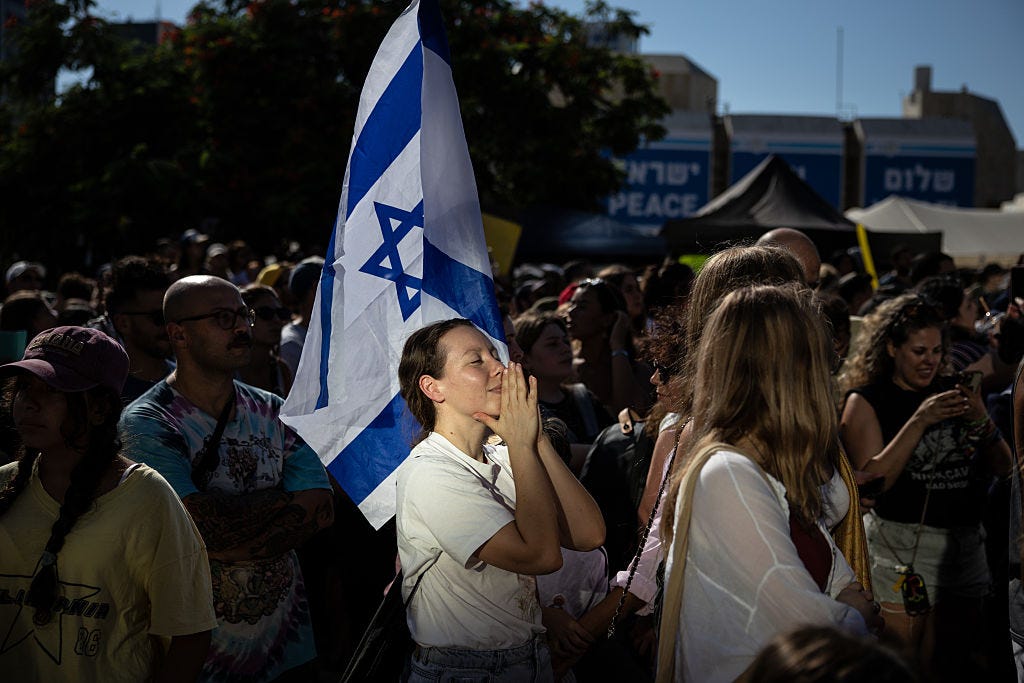The Return of the Hostages—and the Future of the Middle East Matthew Continetti, Amit Segal, Michael Oren, and others on how to understand this extraordinary moment in the Middle East.
A woman listens to Donald Trump address the Knesset, Israel’s parliament, on a screen in Hostages Square in Tel Aviv on October 13, 2025. (Chris McGrath via Getty Images)
“This is the historic dawn of a new Middle East,” President Donald Trump said before the Israeli parliament this morning. As he spoke, the remaining 20 living Israeli hostages crossed from Gaza into Israel, finally home with their families. Israeli authorities confirmed that four coffins containing the bodies of deceased hostages were handed over to the Red Cross. For the first time in two years, there are no living hostages in Hamas captivity. In exchange, Israel released 250 Palestinian prisoners as well as 1,700 detainees. A ceasefire has held since noon local time on Friday, and Israeli troops have pulled back to an agreed-upon line in Gaza. In the hours since the hostage release, images and videos have flooded the internet—tearful reunions and embraces, devastation and tension giving way to joy. After two grueling years of war, it’s hard not to feel that something extraordinary has shifted. This article is featured in Israel. Sign up here to get an update every time a new piece is published. But questions remain. Chief among them: How did this deal happen—and what comes next? Today, we bring you three perspectives seeking to answer those questions. First, Free Press columnist Matthew Continetti reacts to Trump’s address to the Knesset. It “was unique. It was revealing. It will be remembered,” he writes. Read Matthew on why this deal was far from inevitable—and why the U.S. president deserves so much of the credit: Amit Segal has covered Israel’s parliament for 25 years. Never before, he writes, has he “seen it in such a state of ecstasy as when the president of the United States ascended the podium on Monday.” It was a moment that seemed to close one violent chapter and open another, more peaceful one. But what kind of peace will it be? Read Amit on the uncertainties that remain: Michael Oren, who served as Israel’s ambassador to the United States, explores the great paradox of this breakthrough. For generations, diplomats and experts tried to craft peace through complex agreements—and got nowhere. How did three real-estate moguls with limited diplomatic experience succeed where so many others had failed? Read Michael’s piece for his answer: For more on how this extraordinary day unfolded, catch up with our livestream from this morning. The Free Press’s Rafaela Siewert spoke to Free Press contributors Michael Oren, Haviv Rettig Gur, and Matti Friedman as well as Jon Polin and Rachel Goldberg-Polin, the parents of murdered hostage Hersh Goldberg-Polin; and Nimrod Palmach, an Israel Defense Forces reserves major who fought Hamas at several sites in southern Israel on October 7, 2023. Watch it in full here: Become a paid subscriber Get access to our comments section, special columns like TGIF and Things Worth Remembering, tickets in advance to our live events, and more. UPGRADE TODAY |



